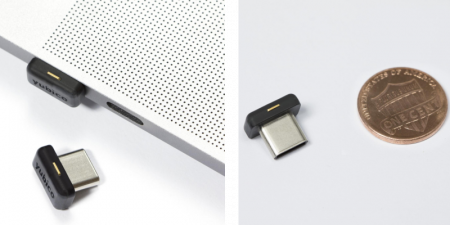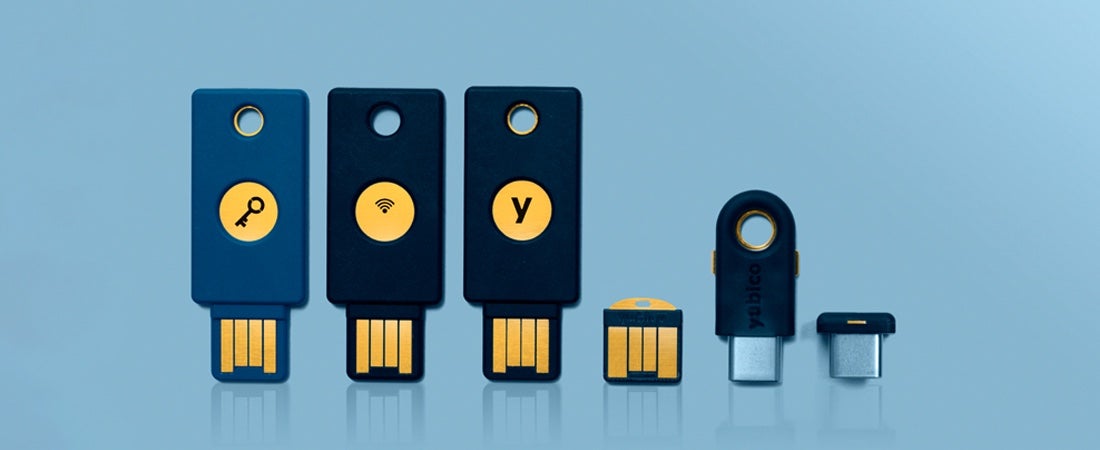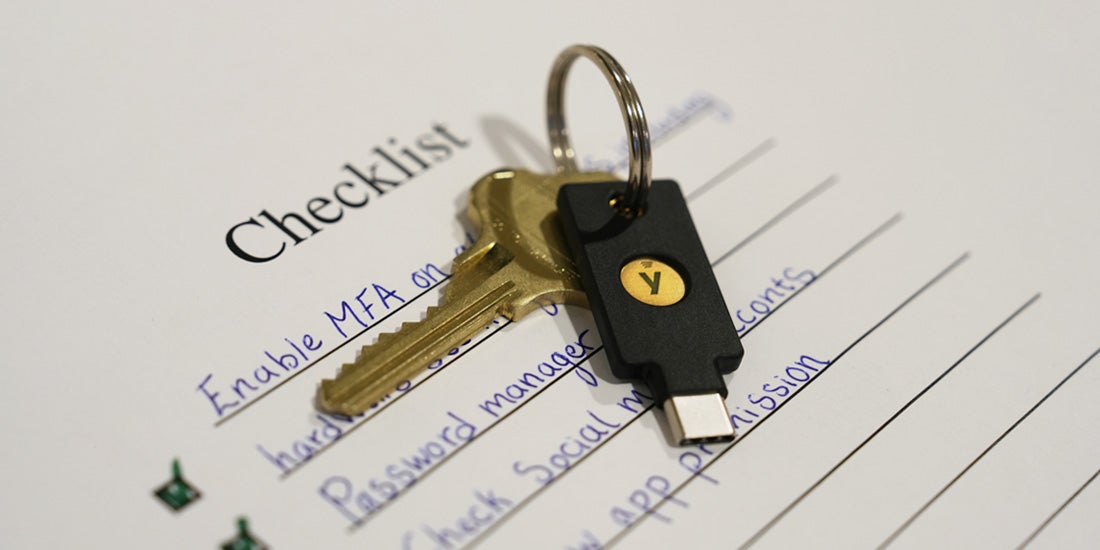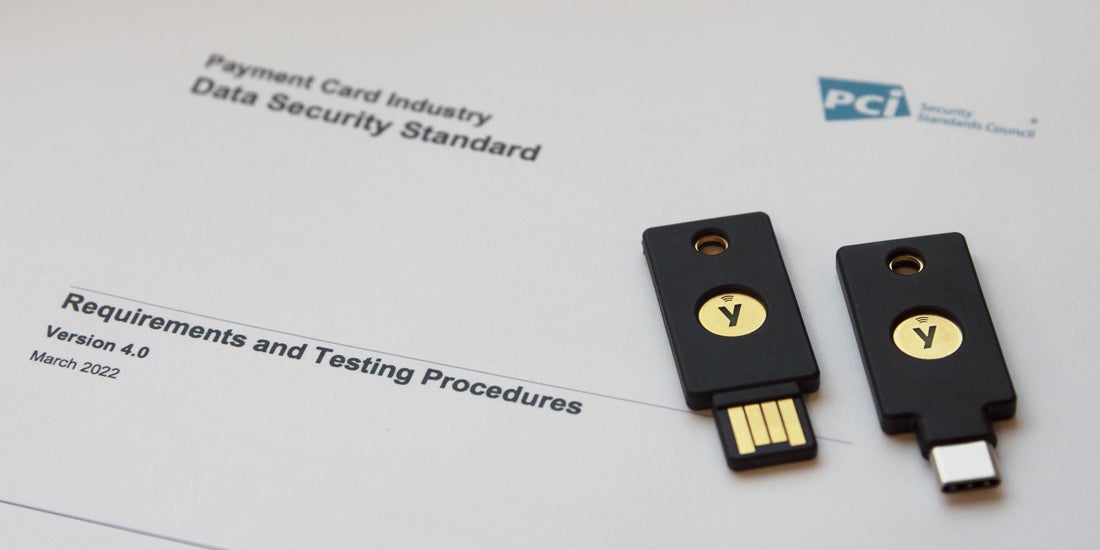Today, at Microsoft Ignite, we proudly announced the first-ever — and the world’s smallest — USB-C authentication device of its kind: the YubiKey 4C Nano.
The YubiKey 4C Nano form factor shares unique features with two of its siblings — the YubiKey 4C and YubiKey 4 Nano. Similar to the 4C, the YubiKey 4C Nano is designed for use with the latest USB-C devices, such as the newly designed Mac and PC laptops. Akin to the 4 Nano, the YubiKey 4C Nano’s miniature design and ultra-low profile allows the device to be left in a USB-C port without any disturbance to a user’s work environment or device mobility.
With the YubiKey 4C Nano’s patent-pending micro-design, the device is built with the same robust, multi-protocol authentication support of the YubiKey 4 product suite. This enables flexible and secure access to a variety of applications: computer login, remote server access, identity access managers, password managers, and an ever-growing number of online web accounts, including Google, Facebook, Dropbox, and more.

Delivering enterprise-grade authentication within a micro-sized hardware device is quite frankly an engineering and product design triumph! That said, we talked to Yubico CTO Jakob Ehrensvard for a closer look at some of the behind-the-scenes effort it took to make this happen. Here’s what he had to say:
Q: Many users, enterprises, and consumers alike are excited about the YubiKey 4C Nano. How did you know this was the best next step in terms of product development?
Jakob: The YubiKey nano design has become popular for users who want their Yubikey to almost be an integral part of their laptop. Particularly, when the user needs to authenticate often, this setup becomes very convenient. So, immediately after we launched the YubiKey 4C earlier this year, customers began asking us for a nano design.
Q: As discussed, the YubiKey 4C Nano size and design is incredibly impressive. What is some of the unseen work that went into this?
Jakob: At first glance, we thought it could not be done. There was simply not enough space to fit both a connector and electronics. The first couple of prototypes simply did not match the elegance of the YubiKey Nano, so we had to go back to the drawing board, and actually design a USB-C connector from the ground up. Fitting the electronics into the small form-factor, and being able to mass-produce them has been a design challenge, but I believe the final result is in keeping with the promise of a YubiKey Nano. It “is just there”, without interfering with everyday use, and without blocking any other ports.
Q: How do you see this product addition strengthening Yubico’s position to better serve enterprises and consumers?
Jakob: With the increasing adoption of USB-C on mobile devices and Apple’s “all in” approach, where they removed all other ports, we believe devices designed specifically for USB-C make the everyday use of the YubiKey simpler and smoother. Going forward, we anticipate a migration to USB-C, where it becomes the ubiquitous standard for peripheral connectivity, from desktop to phones.
Q: Moving forward, what will be the next new thing we see from Yubico?
Jakob: Broadening the hardware options is one part of the equation. In parallel, we’re working on broadening the protocol and platform support to keep the promise of the YubiKey being the ultimate authentication solution. The upcoming FIDO2 and WebAuthn standards will expand the capabilities and platform support, and we’re excited to be driving this effort. In addition to that, we’re finalizing our second-generation YubiHSM product, which extends the reach of the YubiKey to the backend of the authentication and encryption ecosystem, bringing cryptography for servers to the masses.
For more information regarding the full suite of YubiKey products, check out our product comparison chart.





